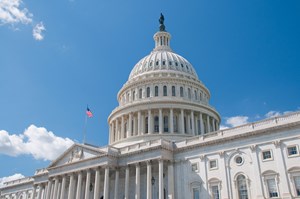Judge Blocks Obama-Era Water Initiative Pending Revision
HOUSTON (UC) — A federal judge in Georgia has blocked enactment of the 2015 Waters of the United States (WOTUS) rule in Georgia and nine other states that filed suit against the U.S. Environmental Protection Agency while the initiative is under review by the Trump administration.

Granting the plaintiffs' motion for summary judgement, U.S. District Judge Lisa Godbey Wood concluded that WOTUS "substantially interferes with an area of traditional state authority without a clear indication from Congress allowing such interference." She remanded the WOTUS rule to the EPA and U.S. Army Corps of Engineers for further evaluation and kept in place a preliminary junction pending the outcome of ongoing review.
The Clean Water Act (CWA), which regulates pollution of the U.S. waters, is overseen by the EPA and the Army. The act makes it “unlawful to discharge any pollutant” “into navigable waters” without a permit. The 2015 Obama-administration rule added three categories of waters to the CWA: tributaries, adjacent waters and significant nexus.
The judge found the WOTUS rule’s expansion of the jurisdiction of "navigable waters" was too vast. For instance, it defines tributaries as any water “that contributes flow, either directly or through another water,” such as rivers or streams, while adjacent waters include wetlands and ponds.
Georgia led a coalition of states challenging the rule in court. Other members of the coalition included Alabama, Florida, Indiana, Kansas, North Carolina, South Carolina, Utah, West Virginia and Kentucky.
Critics of WOTUS said the 2015 rule's definitions were too broad and vague. The American Farm Bureau, for example, said it made it impossible for farmers and ranchers to know whether specific areas on their lands would be deemed "waters of the U.S."
"After analyzing the administrative record ... the Court holds that the WOTUS Rule extends the Agencies’ delegated authority beyond the limits of the CWA (Clean Water Act), and thus is not a permissible construction of the phrase “waters of the United States” within the statute, and that the Agencies’ promulgation of the WOTUS Rule violates the APA's (Administrative Procedure Act) procedural requirements," Wood wrote in an 84-page ruling.
The ruling stops short of overturning the WOTUS rule, however, recognizing efforts since 2017 to develop a replacement rule for the CWA. Instead, Woods leaves it up to Trump administration agencies to decide which waterways are overseen by the federal government or by the states.
"Balancing the equities of this case, the Court finds that although the WOTUS Rule violates the CWA and the APA, administrative efforts are already underway to repeal and replace the WOTUS Rule with a new rule that abides by both statutes. As such, an order vacating the Rule may cause disruptive consequences to the ongoing administrative process" Woods wrote.
"The more prudent course of action here is to allow the Agencies to continue their efforts to change the WOTUS Rule in light of the serious defects identified in this Order while leaving this Court’s existing preliminary injunction in place," her order states.
“Today’s court ruling rightfully rejected gross federal overreach into state land and water regulation, ultimately protecting the livelihoods of thousands of Georgia farm families and agribusinesses,” Georgia Gov. Brian Kemp said in a statement after the ruling.
While much of the opposition to WOTUS originated with agri-business, it also has significant implications for the underground construction industry.
Related News
From Archive

- Glenfarne Alaska LNG targets late-2026 construction start for 807-mile pipeline project
- U.S. water reuse boom to fuel $47 billion in infrastructure spending through 2035
- $2.3 billion approved to construct 236-mile Texas-to-Gulf gas pipeline
- Major water pipe break in Puerto Rico hits over 165,000 customers
- Potomac River Tunnel project enters construction phase beneath Washington, D.C.
- Pennsylvania American Water launches interactive map to identify, replace lead water service lines
- Trump's tariffs drive $33 million cost increase for Cincinnati sewer project
- Utah city launches historic $70 million tunnel project using box jacking under active rail line
- Tulsa residents warned after sewer lines damaged by boring work
- Fatal trench collapse halts sewer construction in Massachusetts; two workers hospitalized



Comments